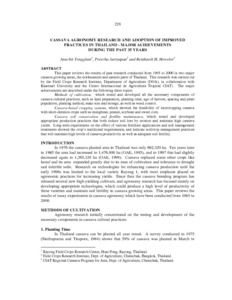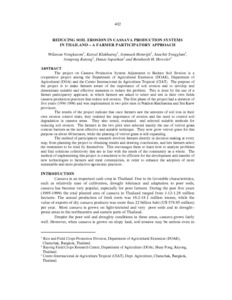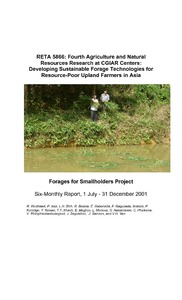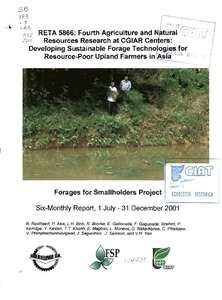Living aquatic resources play a fundamental role in sustaining the livelihoods of many of the rural poor in Asia, providing crucial buffers to shock and food insecurity, and offering opportunities for diverse and flexible forms of income generation. As with any production-based intervention, the…
A report of the proceedings of the October 2001 regional consultation on the above theme, the document explains the urgent need for arresting and reversing the decline in investment in land and water development in Asia-Pacific countries. Land and water investment priorities include coping with…
This document contains the proceedings of the Regional Workshop on Land Resources Information Systems (LRIS) in the Near East, held in Cairo from 3 to 7 September 2001. The meeting was organized by FAO Land and Water Development Division (AGL) and the Near East Regional Office, in collaboration…
Paper presented at the International SymposiumSustaining Food Security and Managing Natural Resources in Southeast Asia- Challenges for the 21st CenturyOrganized by University of Hohenheim, GermanyChiang Mai University and Kasetsart University, ThailandInternational Center for Research in…
What factors motivate developing countries to prevent deforestation, which can cause serious environmental damage, such as flooding? Do democratic states take action more effectively than authoritarian states? This paper considers these questions using two case studies: the 1988 floods in…
ABSTRACTED FROM INTRODUCTION: How have national and state governments the world over come to “own” huge expanses of territory under the rubric of “national forest,” “national parks”, or “wastelands”? The two contradictory statements in the above epigraph illustrate that not all colonial…








